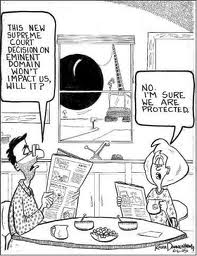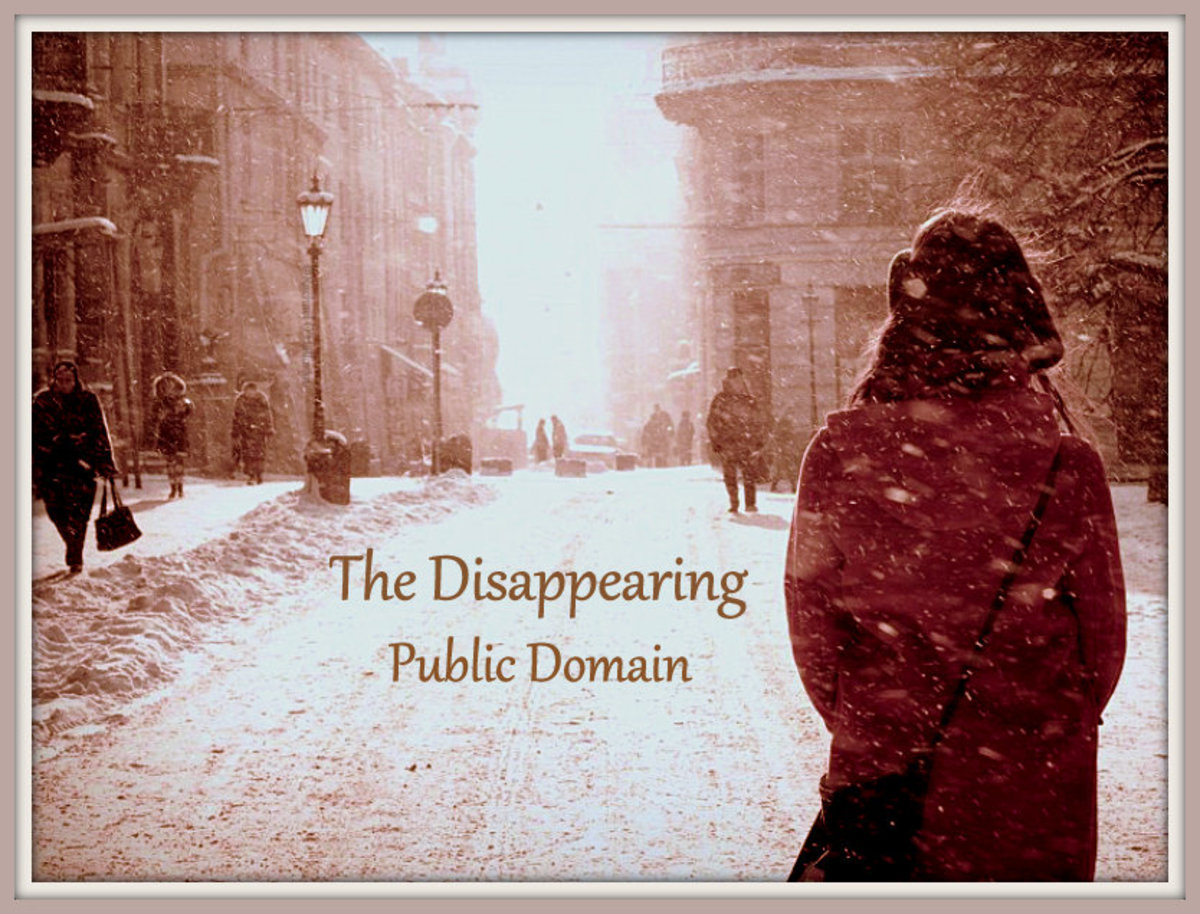Eminent Domain in the 5th Amendment

Do you agree with Justice Stevens' Opinion or Justice O'Connor's Dissent
by Amber Maccione
Eminent Domain
In the case of Kelo v. City of New London, the city decided to seize private property from Kelo and some other residents in which they turned around to sell that seized property to private developers in hopes of creating new jobs and boosting the economy in their area. Kelo sued the city saying that the city violated the 5th Amendment’s Takings Clause which states “nor shall private property be taken for public use, without just compensation” (Davis 2008 p. 354). (Kelo v. City of New London 2012).
The question that was brought before the Supreme Court was, “Does a city violate the Fifth Amendment’s Takings Clause if the city takes private property and sells it for private development with the hopes the development will help the city’s bad economy?” (Kelo v. City of New London 2012). The majority was a 5-4 vote with Justice Stevens giving the opinion. Stevens stated that what the city had done did qualify for public use because the city wasn’t taking the private property for personal gain but rather to help with an economic development plan to help boost the economy in that area. He stated that the 5th Amendment’s Takings Clause did not need to be interpreted literally but could be interpreted with a “broader and more natural interpretation of ‘public use’ as ‘public purpose’” (Kelo v. City of New London 2012).
Justice O’Connor, on the other hand, gave the dissent saying that the city did violate the 5th Amendment’s Takings Clause because the Constitution should be interpreted literally (Rappa 2005). She used the cases of Berman [city seized property deemed as blighted to help with beautifying the city and Supreme Court ruled in city’s favor (Berman v. Parker 2012)] and Midkiff [the Land Reform Act of 1967 which took land from lessors and gave it to the lessees and the Supreme Court ruled that this oligopoly did not violate 5th Amendment’s Public Use Clause (Hawaii Housing Authority v. Midkiff 2012)] to state that the purpose in these cases was to eliminate harm not for economic development (Rappa 2005). In saying this, she pointed out that ruling in the city’s favor, the Supreme Court was rendering the Takings Clause meaningless and removing any effective check on the eminent domain power (Rappa 2005).
I agree with the dissent by Justice O’Connor. I think that the 5th Amendment’s Takings Clause should have been interpreted literally. Seizing private property to sell to private developers (whether to “build the economy” or not) does not qualify for public use. Public use as I understand it is taking property to create something that will be useful to the public. If the government takes private land and then turns around to sell it to a private developer the government is benefiting, not the public. Yes, jobs may be created but that is not in the government’s hands but rather now in a private company’s hands. The eminent domain requires that the property seize must be used for public use and in this case I did not see public use demonstrated but rather the government profiting through a loophole of “let’s not take the literal interpretation, but let’s stretch it out to a broader meaning so we can get what we want.”
References
(2 November 2012) Berman v. Parker. The Oyez Project at IIT Chicago-Kent College of Law. Retrieved from http://www.oyez.org/cases/1950-1959/1954/1954_22
(3 November 2012) Hawaii Housing Authority v. Midkiff. The Oyez Project at IIT Chicago-Kent College of Law. Retrieved from http://www.oyez.org/cases/1980-1989/1983/1983_83_141
(4 November 2012) Kelo v. City of New London. The Oyez Project at IIT Chicago-Kent College of Law. Retrieved from http://www.oyez.org/cases/2000-2009/2004/
2004_04_108
Davis, S. (2008). Corwin and Peltason’s Understanding the Constitution (17th ed.).
Belmont: Thomason Higher Education.
Rappa, J. (26 July 2005). Kelo v. City of New London. OLR Research Report. Retrieved from http://www.cga.ct.gov/2005/rpt/2005-R-0560.htm
Copyright © 2012 http://ambercita04.hubpages.com/








